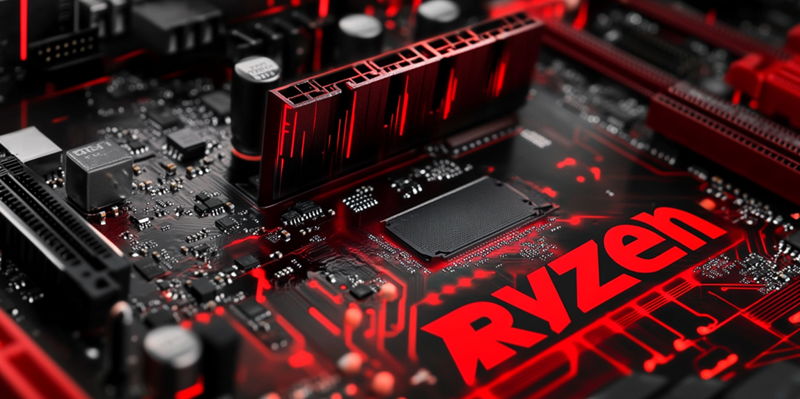In an aggressive move to captivate more of the desktop CPU market, AMD has significantly reduced prices on its Ryzen 9000 series processors, heralding the forthcoming release of the cutting-edge Ryzen 7 9800X3D. With the anticipated launch of the new Ryzen 7 9800X3D on November 7th, AMD’s strategic price cuts offer an attractive proposition for technology enthusiasts eager to optimize both gaming and productivity performance. The Ryzen 7 9800X3D, built on the innovative Zen 5 architecture and featuring 3D V-Cache technology, promises to usher in a new era of high-performance computing, making it a compelling choice for those at the forefront of tech.
The most notable price reductions can be found in the Ryzen 9 9900X and the Ryzen 5 9600X. Previously priced at $499, the Ryzen 9 9900X now sees its cost slashed to $382, making it a hot commodity for those seeking exceptional performance without the hefty price tag. This powerful 12-core, 24-thread processor, boasting an impressive 80 MB cache, remains an excellent option for gamers and professionals alike. Meanwhile, the Ryzen 5 9600X, now under $250, also presents a tempting alternative for mid-range users. Furthermore, the Ryzen 9 9950X enjoys a $50 discount, solidifying its status as a robust solution for demanding computational tasks.
These price adjustments demonstrate AMD’s commitment to offering competitive, high-performance CPUs while maintaining affordability. By slashing prices, AMD aims to attract a broader audience, including individuals intent on constructing powerful gaming rigs with the savings potentially redirected toward acquiring high-end GPUs. As Intel’s Core Ultra series remains a formidable competitor, AMD’s strategy highlights the importance of delivering exceptional value and performance to consumers. The current discounts make it an opportune time for tech enthusiasts to enhance their setups, though another compelling option looms on the horizon.

